Countdown: 50 days to tipoff
It’s been a long process, and there is now new (COVID) uncertainty in the air, but the London Lightning remain poised to return to the court in February and shoot for an NBL title.
Marcus Capers throws down a dunk during a game against the KW Titans in February 2020. Barring COVID delays, the team will return to the court — for the first time in two years — Feb. 5. (Photo: Luke Durda).
* * *
After the last two years, you knew that starting the new NBL Canada season wouldn’t exactly be a slam dunk, but this is an instant replay nobody asked for – 646 days off the court, 50 days from tipoff, and now a return of hour-by-hour uncertainty.
On Wednesday, the Ontario government announced new measures to curb the rise of the Omicron coronavirus variant. Among them, the government capped capacity for indoor facilities holding more than 1,000 people at 50% starting Saturday. That order pertains to most sporting venues, including Budweiser Gardens, the home of the London Lighting.
“With Omicron spreading so fast at such an alarming rate, we need to target the largest crowds indoors, where people are often unmasked,” Premier Doug Ford said at a press conference.
While the announcement sent the NBA, NHL, and OHL scrambling to adapt to the new restrictions, as well as to reconsider their own testing programs and protocols, the NBL Canada continues to watch carefully as it prepares for its upcoming 10th anniversary season.
In London, the last of the ‘Original Seven’ is overcoming the challenges of the last two years and is focused on doing something it has done more than any team in league history – bringing home a championship.
* * *
When last we saw them, the Lightning (15-8) had clawed their way back to the top of the central division.
“We had just retooled the roster a little bit, brought in a couple of new players, and we were starting to gel, starting to pull things together,” explained Lightning GM Mark Frijia. “Then the rug got pulled out from under us.”
The Lightning and NBL Canada were not alone – everything was starting to unravel everywhere, and sports was no exception.
On March 11, 2020, the NBA suspended its 2019-20 season after a game between the Utah Jazz and Oklahoma City Thunder was postponed prior to tipoff after Jazz centre Rudy Gobert tested positive for COVID-19. Perhaps no player symbolizes the start of the pandemic in sports more than Gobert, who is best known for mockingly touching every microphone and recorder at a press conference only two days earlier concerning his team’s response to the virus.
That same night, nearly 3,000 km away, the Lightning shrugged off a slow start against the Sudbury Five to earn a 122-113 victory.
“I remember that game very well,” Frijia said. “We’re playing the game while we’re getting notifications that the NBA just postponed a game, that the NBA is possibly shutting things down. That day, I went from talking to our building staff about probably looking into putting on more restrictions even though there weren’t any COVID cases in London yet. Then all that stuff started happening and I’m like, ‘Oh, tomorrow is going to be fun.’
“There was so much uncertainty. We knew we didn’t have any cases here, but we knew the government would play it really cautiously. The ball wasn’t going to be in our hands, so we kinda rolled with it.”
Think back to those earliest days of the pandemic, before it became an everyday part of our lives, and how quickly it all happened. Frijia still marvels at how quickly talk went from returning in a couple of weeks, to returning in a couple of months, to scrapping the season and starting up later.
“We’ve been like this for the last two years. When we postponed the season, we didn’t know if we were going to be able to finish it or not,” he said. “Then, once we knew it wasn’t just going to be a couple month thing, we were like, ‘OK, we probably can’t continue this season this year, so we will start up again next year.’ Then we looked at it again the next year, and it was still going on and we didn’t see an end in sight.”
* * *
It can get weird when you start looking back.
In December 2019 and January/February 2020, the Lightning suffered through weeks of injuries and illnesses that impacted the day-to-day lives of players and coaches – and their play on the court. They were going into games shorthanded, and it was starting to show.
At the time, the illness was chalked up to a ‘bug’ or the ‘flu,’ just like so many of us did when someone was sick in our offices that winter. But it’s hard not to look back and wonder what exactly the team was fighting its way through.
“It really depends on who you ask.” Frijia said. “Our coach got diagnosed with pneumonia in late January and was pretty much out of it for 10 days. I was really sick over Christmas for three or four days, but I don’t think that was it (COVID-19). But there was a rash of sickness that went through the team, and almost everyone got it in about a three-week span. I didn't know; I’m not going to speculate on it, but we definitely had a had a pretty rough illness.”
In London, a Western University student who had recently returned from Wuhan, China, was the first official case of COVID-19, according to the Middlesex-London Health Unit. That was Jan. 31, 2020. Since then, the region has seen more than 15,500 cases, along with 256 deaths.
Then-Lightning forward Mo Bolden was the first player to fall ill. He knew he would be out for some time the moment he had to call his coach to say he wouldn’t make practice.
“I don’t miss practice. Ever. I’m always going to practice no matter what – injury, anything. But I just couldn’t get up that day,” Bolden said, reflecting on his rocky December. “Usually, if I get sick, I go to the treadmill, to the sauna to sweat it out. I go run, go practice, get myself going. But it wasn’t working. I was getting sicker and sicker and sicker to the point I couldn’t walk, couldn’t talk, barely could breathe.”
He ended up in the hospital before recovering.
“That time was so crazy. I actually had COVID. I’m sure that our whole team had COVID,” Lightning head coach Doug Plumb said.
“At that point in the season, we were absolutely decimated with injuries and sickness. We had gone through a treacherous point in our schedule. I was training for the Boston Marathon, and we were on a road trip. I was very run down, and then I got sick, and then (guard) A.J. Gaines got sick. We went through that for about a week, and everyone just thought at the time it’s the flu and you just toughed it out.”
The low point came on February 17 when the Lightning hosted the KW Titans in a grueling, double-overtime 108-107 loss on Family Day.
“Some of us were so sick. We were vomiting. I sweat through my entire suit; I had a gray suit on, and I sweat through it. There was nobody left on the bench,” said Plumb, who tested positive for COVID antibodies when working within the NBA bubble later in the pandemic. “I’m sure that that was what I had. And I just never knew it.”
Gaines also remembers those days well.
“Now that we look back at the situation, and how we went through the sicknesses, we may have had COVID,” said the guard, now playing with Kagoshima Rebnise in Japan. “When all the information started coming out around February, we were all looking at each other like it that could have been what we had. I never had the flu, never had a flu shot or anything, but then when they started going down the line of symptoms: loss of taste – check. Sweats – check. I was literally having to change my sheets every night because I was sweating through the bed. That’s for sure what I had, and then it kept going to the next person and the next person.”
Mareik Isom was the first Lightning player signed for the 2022 season (announced Dec. 16). The 6-foot-9 forward averaged 10.8 points and 5.3 rebounds per game during the 2019-20 season. (Photo: Luke Durda).
* * *
Perhaps ironically, the Lightning got better just in time for the world to shut down.
“We were on a trajectory where we didn’t have the best record in the league at that time, but we had the best team when we were healthy,” Plumb said. “The guys had been there before, and we had great chemistry. It was really unfortunate, but who are we to complain with what everybody has been going through for the last two years.”
In the months since the league shut down, Lightning players and coaches scattered across the globe – some headed home, back to jobs and family, others to play abroad.
In London, the front office stayed connected and close to the league, but life and work went on for Frijia. But somehow, through it all, he knew his team would return to the court.
“Going through the process, especially with COVID forcing a shadow over the league, there were highs and lows, but we were always thinking positively, and we were always going to do everything we could to play,” Frijia said. “Whether that was going to be up to us or not, we didn’t know, but at the same time, we always knew if it was going to be possible, we were going to make it happen.”
In November, the NBL Canada Board of Directors announced that the league would begin a long-delayed 10th anniversary season on Feb. 5. By the 2022 season tipoff, it will have been nearly two years since teams last took the court. The formerly eight-team league is down to four, as each of the Atlantic Division teams, including the Moncton Magic, Halifax Hurricanes, St. John’s Edge, and Island Storm, have dropped out.
As a result, the NBL Canada has partnered with The Basketball League (TBL) for interleague contests against U.S. opponents.
For the 2022 season, the NBL Canada-TBL partnership adds four U.S. opponents to the Lightning schedule, including visits from the Lansing Pharoahs (March 6), Syracuse Stallions (March 19), and Flint United (April 3), as well as road trips to Albany Patroons (March 31), United (April 8), and Pharoahs (April 9).
“(The partnership) brings variety and excitement to fans who get to see how we compare to a different league, how we compare to teams from The States,” Frijia said. “It brings us some more legitimacy to the season; it brings us more talent opportunity; it brings us more games. If you have more games, you can bring in higher-calibre players.”
The league is confident in its ability to move forward into an uncertain future. Part of that confidence, league officials explained, comes from their ability to see how other teams and leagues have handled re-openings in recent months – and continue to handle the challenges of outbreaks, altered schedules, and fluctuating capacity requirements.
“We were a little worried when the Knights opened up with no fans for their first couple of games and then some fans a couple games after that,” Frijia said. “But once we saw things were going in the right direction, we knew we would have a very good chance, a serious possibility of coming back.”
The OHL is, once again, facing pandemic challenges with the postponing of games, including the London Knights-Owen Sound Attack contest Friday night. Earlier in the week, 13 Erie Otters players tested positive for COVID-19, forcing the team to postpone two games.
If the Lighting front office is worried about the fate of the season, it didn’t show this week. On Thursday, the team re-signed forward Mareik Isom for the 2022 squad. The 6-foot-9 forward returns to the Forest City for his third NBL Canada season after averaging 10.8 points and 5.3 rebounds per game while also shooting 54% from the field in his first season with the Bolts (6th-best in the NBL).
“We’re excited to be back. We’re excited to have the fans back, for them to be able to watch us, to let them enjoy the games. We do this for them,” Frijia said. “We want to put on a good show, and we want win basketball games for them. As fans of the Lightning know, we don't really like settling for less than winning. Our plan is to go out there and put the best product we can on the floor and then try to win everything. Trying to win it all is what we try to do.”
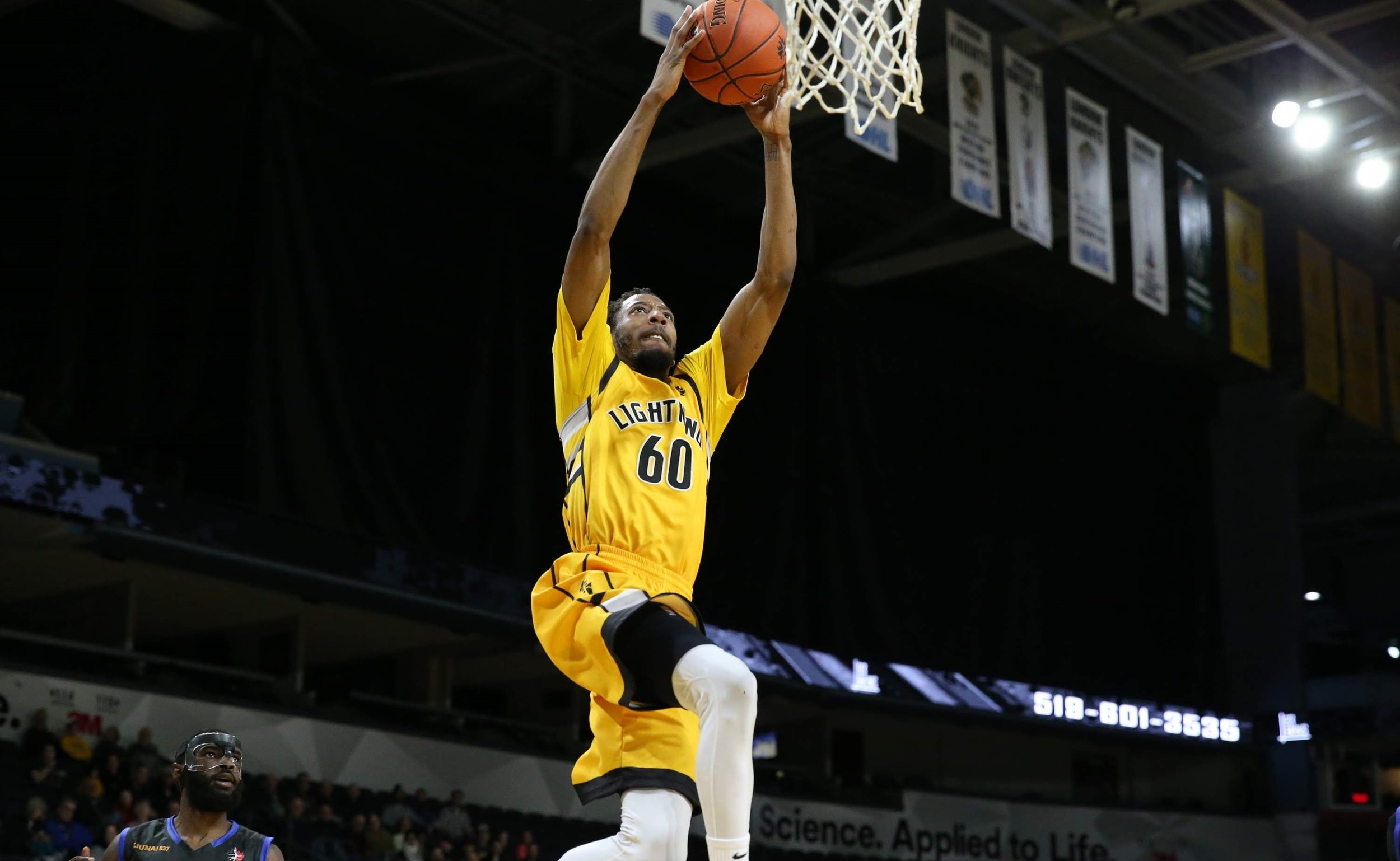
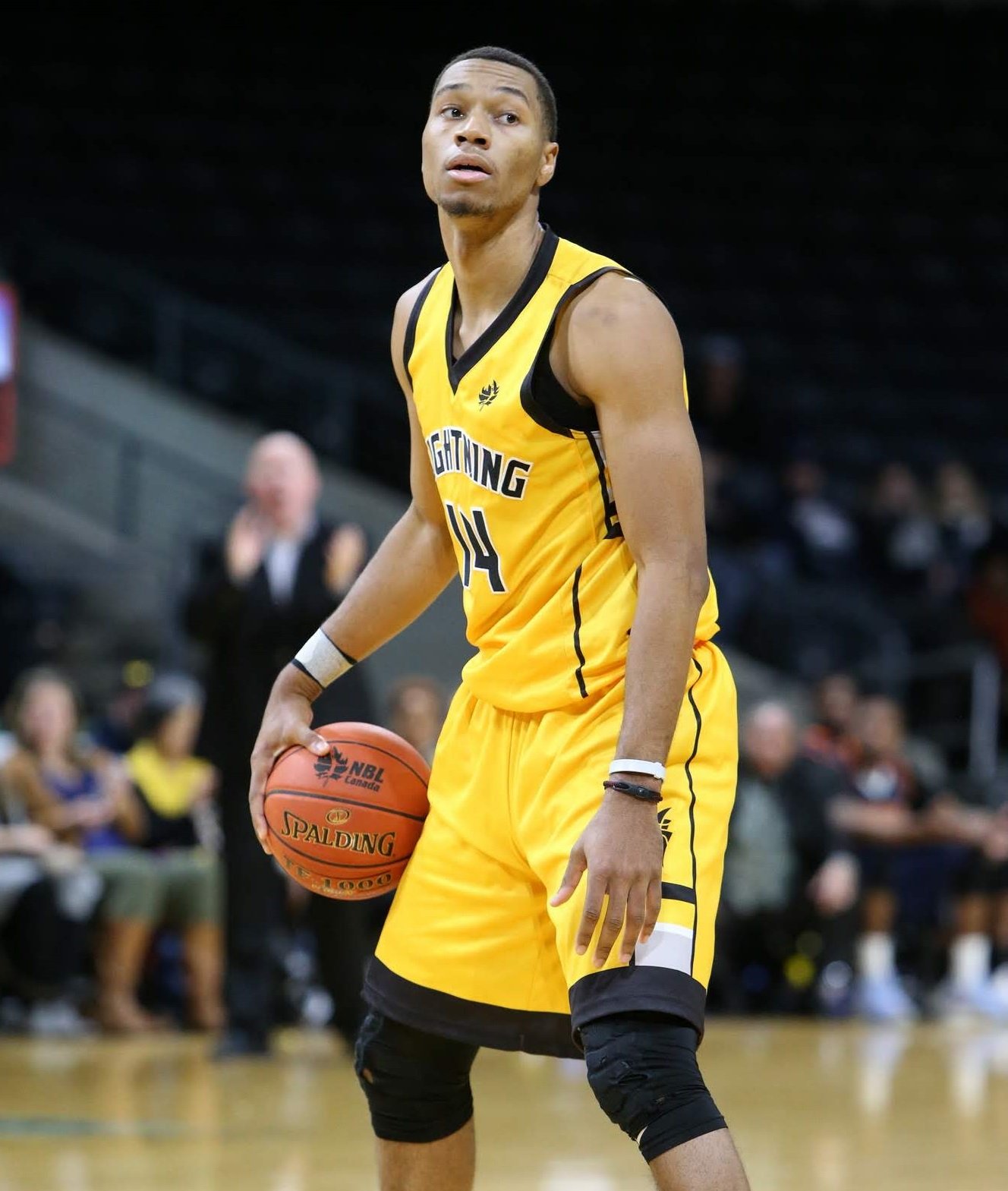

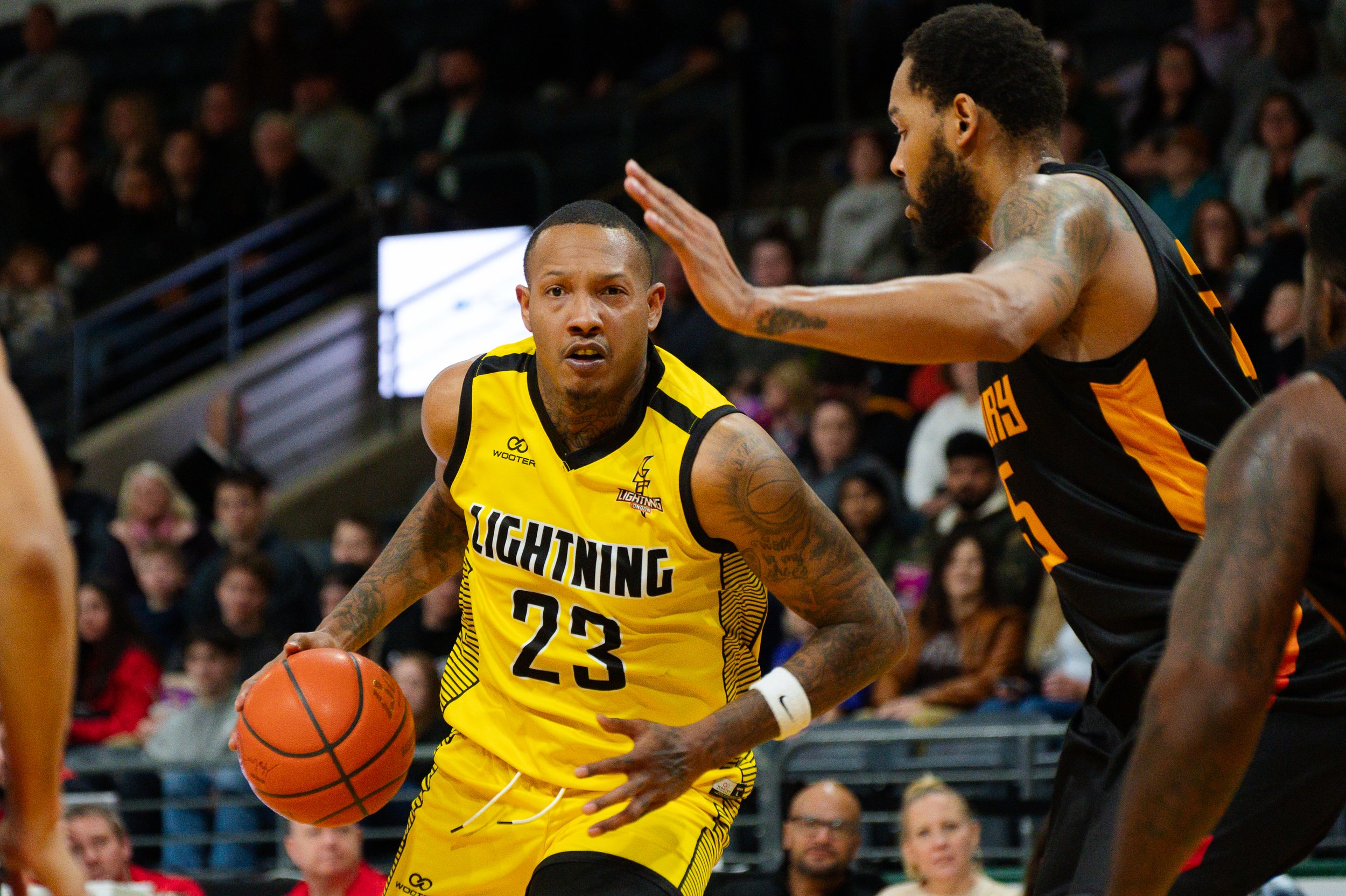
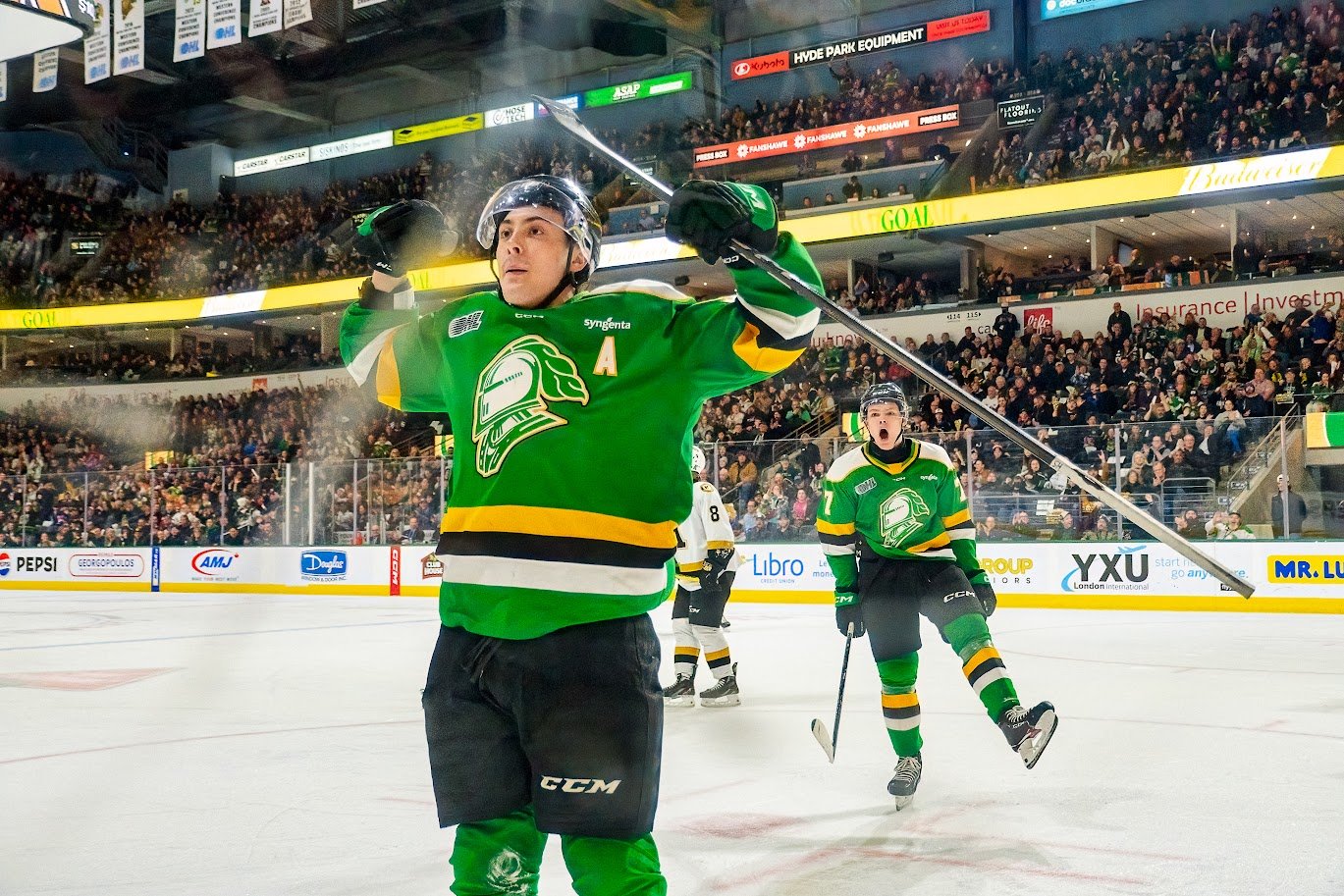
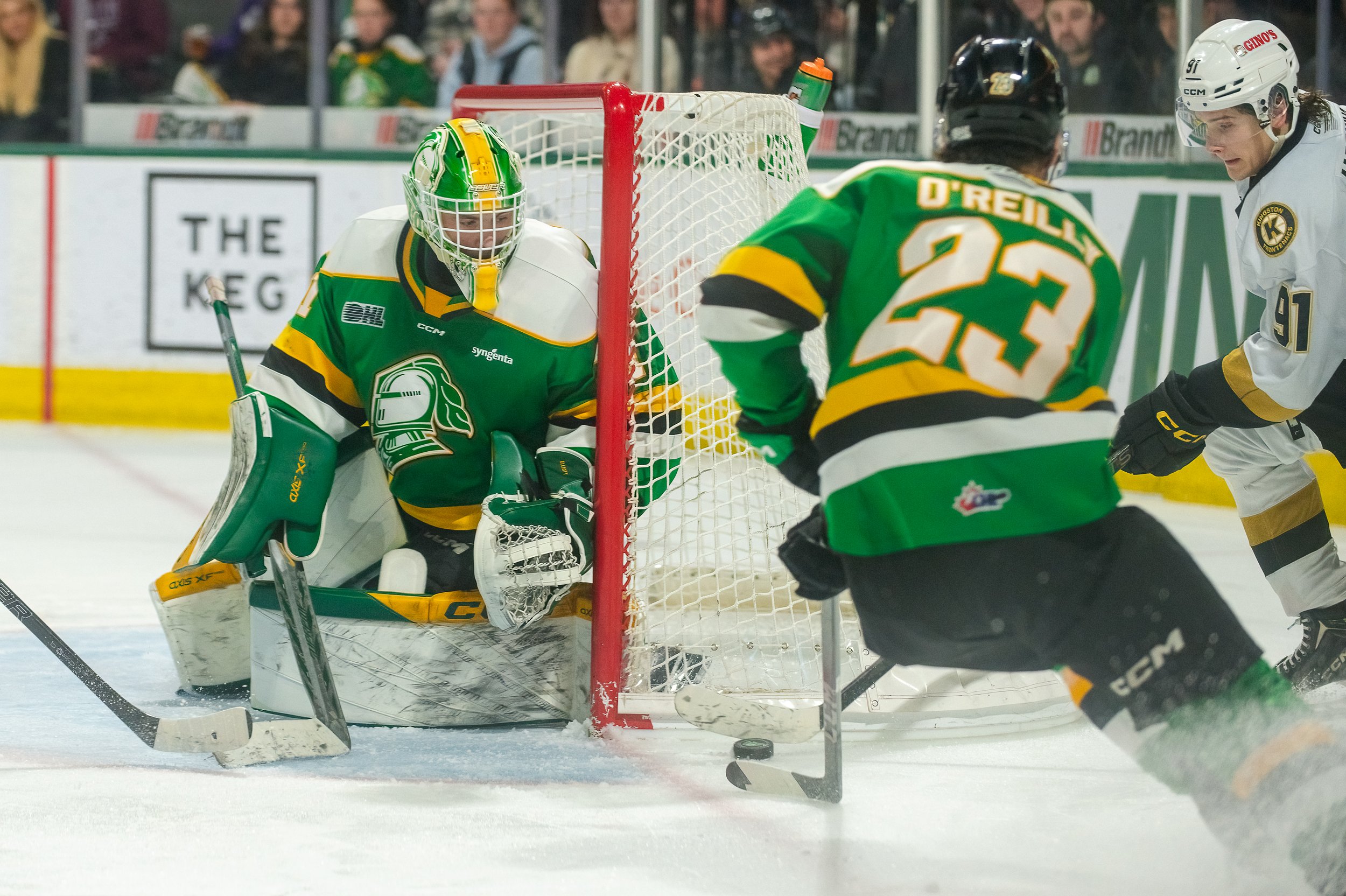
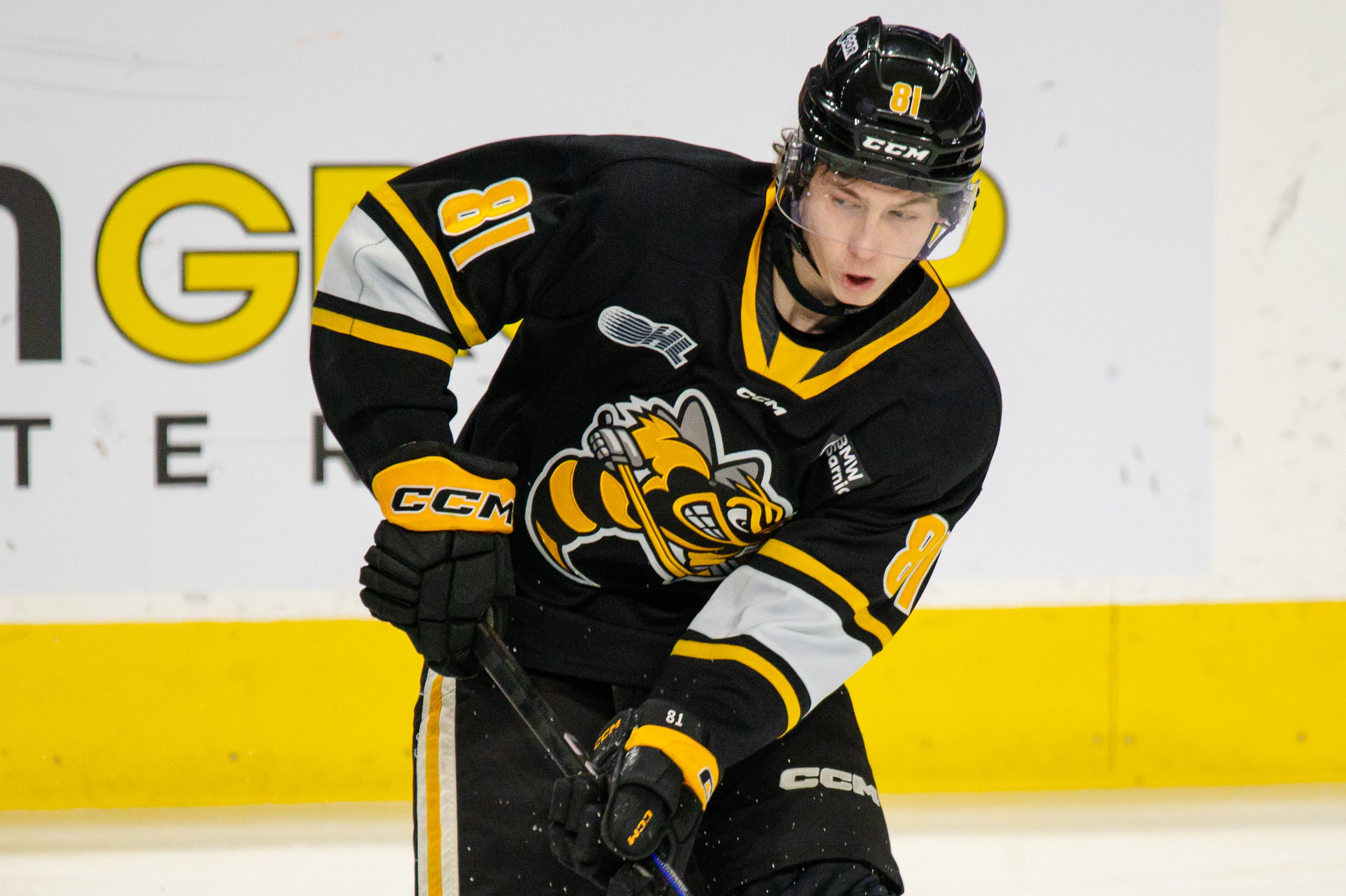

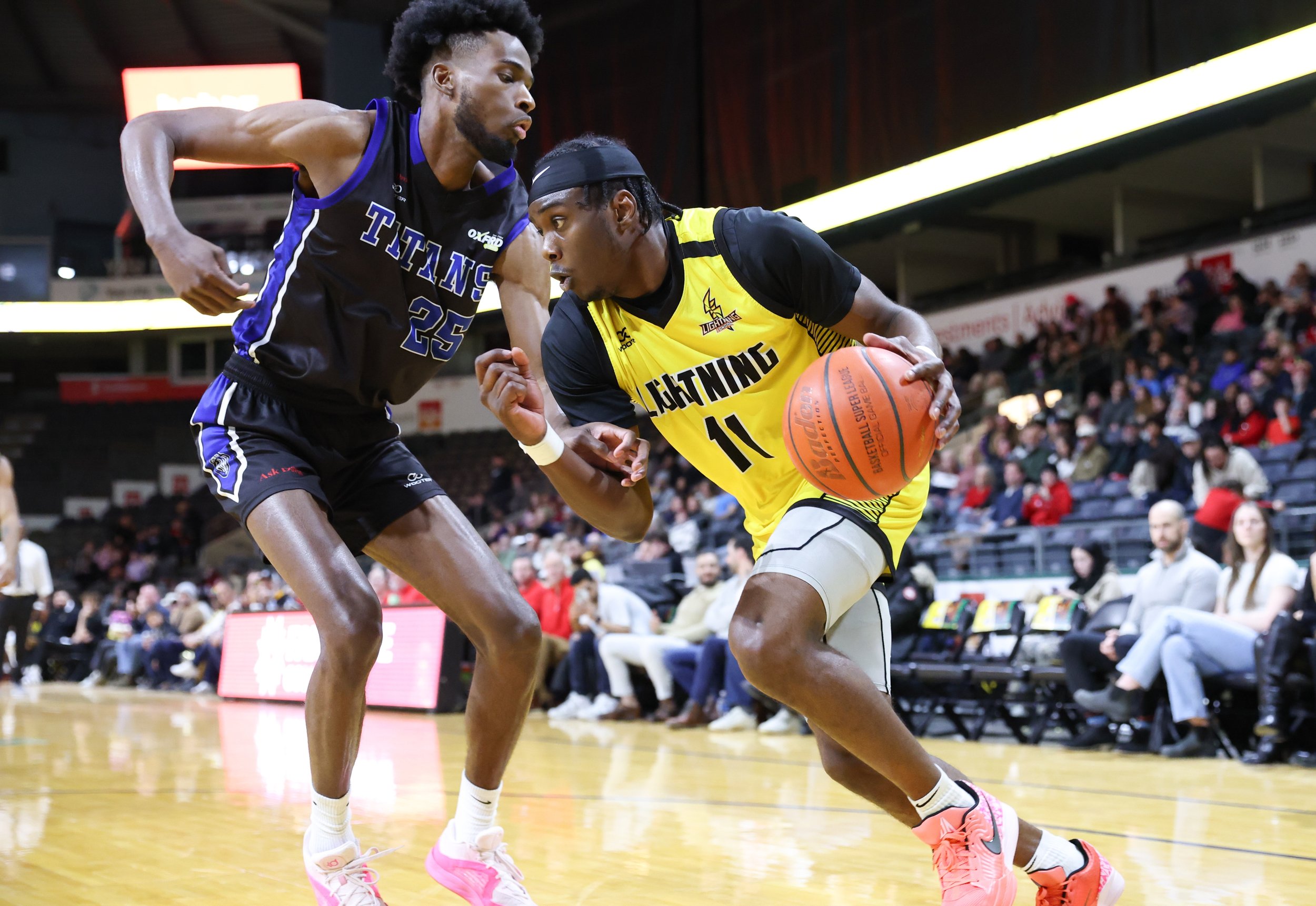


Around the Perimeter: London set for one-game playoff in New York. Winner moves on to semi; Coach Williams believes he’s found the right mix; Can Lightning conquer the Jackals’ den? …